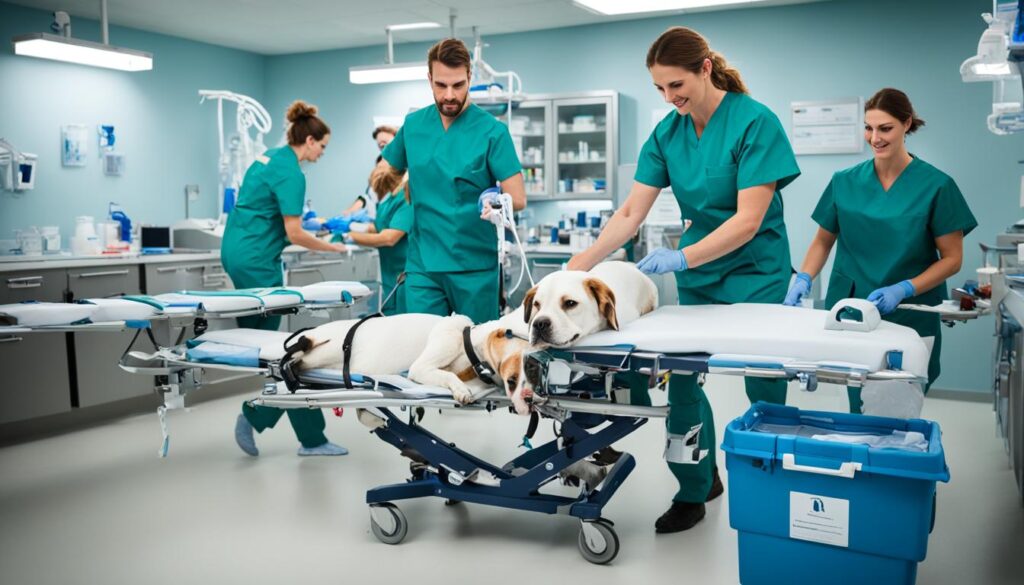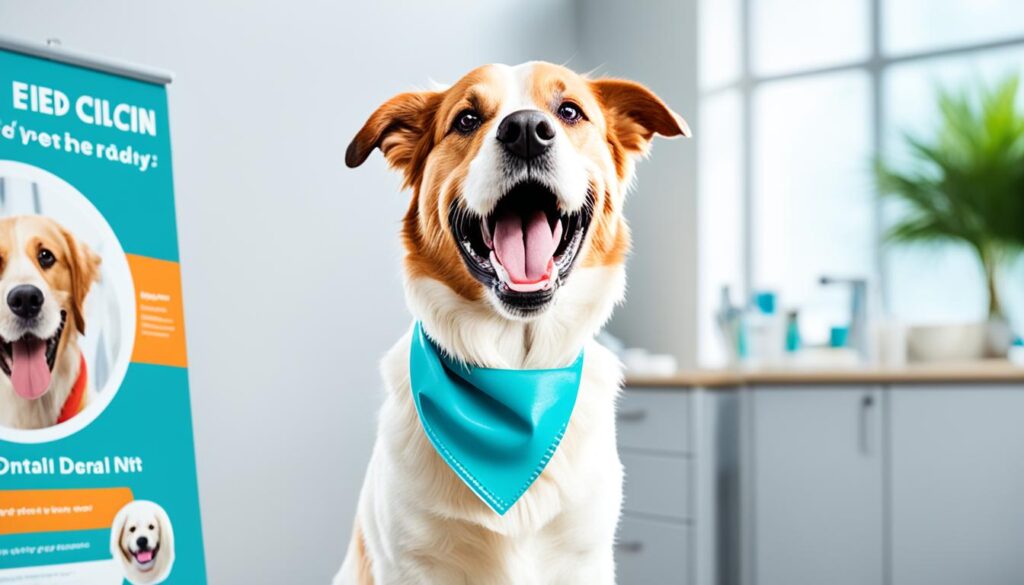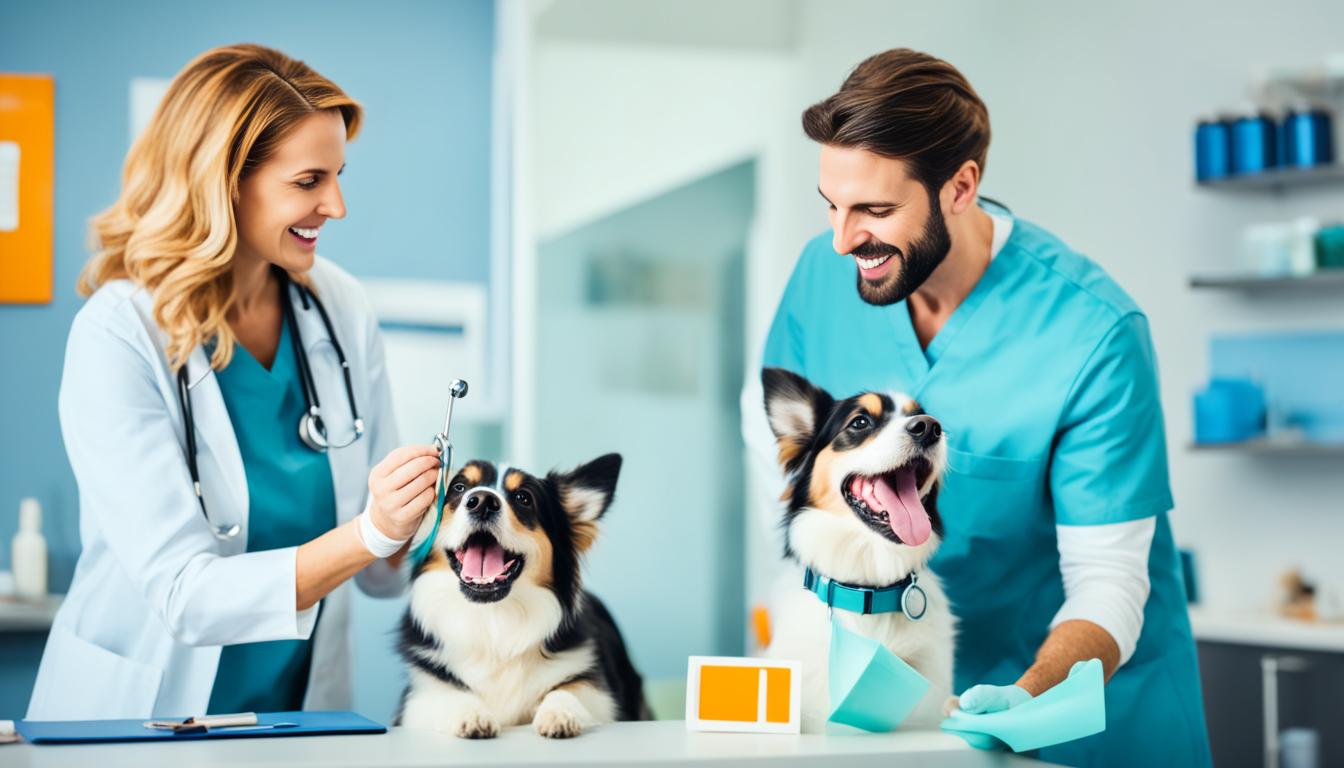Welcome to our comprehensive guide on pet health and wellness! As pet owners, we understand the importance of providing the best care for our furry companions. One fundamental aspect of maintaining their well-being is regular visits to the veterinarian. These visits go beyond just vaccinations and treatments; they play a crucial role in ensuring the long-term health and longevity of our pets. In this article, we will explore the numerous benefits of regular vet visits and provide you with invaluable pet care advice, best practices for pet health, holistic pet health tips, preventative care tips, and natural pet remedies.
Regular vet visits offer a proactive approach to pet healthcare by enabling early detection of potential health issues. Through comprehensive physical examinations, vaccinations, and tailored nutritional guidance, your veterinarian can identify and address any concerns before they escalate into serious problems. Moreover, regular vet visits allow for weight management assessment, dental health evaluations, and the detection of behavioral changes in your pet.
We understand that senior pets require special considerations and chronic health monitoring. Therefore, this guide emphasizes the importance of regular vet visits for aging pets and senior care. By investing in regular vet visits, you not only ensure your pet’s overall well-being but also strengthen the bond between you and your furry companion.
Key Takeaways:
- Regular vet visits are crucial for maintaining the health and longevity of your pet.
- Early detection of potential health issues is one of the primary benefits of regular vet visits.
- Vaccinations, tailored nutritional guidance, and dental health assessments are provided during regular vet visits.
- Regular vet visits allow for weight management assessment, detection of behavioral changes, and mental stimulation for your pet.
- Senior pets require special considerations, and regular vet visits are especially important for their care.
Understanding the Scope of Preventative Pet Care
Preventative care plays a vital role in keeping your pet healthy and preventing the onset of various diseases and health issues. By prioritizing preventative pet care, you can ensure the overall well-being and longevity of your beloved companion.
Why Preventative Care is Essential for Your Pet
Preventative care for your pet involves proactive measures to detect and address potential health problems before they become severe. Regular vet visits are a cornerstone of preventative care as they allow for early detection of underlying health issues and prompt treatment, increasing the chances of successful outcomes.
During these visits, your veterinarian will provide a comprehensive examination, vaccinations, and screenings, tailored to your pet’s specific needs. Vaccinations protect your pet from contagious diseases, while screenings help identify any potential concerns that may not be apparent on the surface.
By investing in preventative care, you are taking proactive steps to safeguard your pet’s health, well-being, and happiness.
Combatting Local Health Challenges with Regular Vet Visits
In certain areas, pets may face specific local health challenges that require additional care and attention. For example, warm climates often have a high prevalence of parasites, posing a significant risk to your pet’s health. Regular vet visits become even more critical in combating these local health issues.
An important aspect of preventative pet care in such areas includes parasite control. Your veterinarian will recommend and administer appropriate preventive measures, such as flea and tick preventives and regular deworming, to keep these parasites at bay.
Additionally, the local environment may require specific vaccinations to protect your pet from region-specific diseases. Your veterinarian will take these factors into account and ensure your pet receives the necessary immunizations for their overall well-being.
By staying proactive in your pet’s healthcare, you can help them thrive in their local environment and enjoy a happy, healthy life.
Insights into a Comprehensive Pet Check-Up
A comprehensive pet check-up is an essential part of ensuring your pet’s overall health and well-being. During a comprehensive check-up, your veterinarian will conduct a thorough physical examination, administer necessary vaccinations, and may perform additional diagnostic tests if needed.
The physical examination is a critical component of the check-up. It allows the vet to assess various aspects of your pet’s health, including their eyes, ears, mouth, skin, coat, cardiovascular system, respiratory system, and overall body condition. By examining these areas, the veterinarian can identify any abnormalities or potential health issues.

Vaccinations are an important part of the comprehensive check-up as they provide protection against common diseases. Your vet will administer vaccines tailored to your pet’s needs, taking into consideration factors such as their age, lifestyle, and risk factors.
In some cases, additional diagnostic tests such as bloodwork or imaging may be recommended. These tests can help detect underlying health issues that may not be evident through external observation alone.
A comprehensive pet check-up is crucial for assessing your pet’s overall health, identifying any potential problems early on, and providing appropriate interventions. By prioritizing regular check-ups, you can ensure your pet receives the necessary care to live a happy and healthy life.
Pet Health and Wellness Tips: A Guide to Long-Term Benefits
Spotting Early Signs of Health Issues
As responsible pet owners, it is essential to be attentive to any changes in our pets’ behavior, appetite, energy levels, or physical appearance. These subtle changes can often be early indicators of underlying health problems. By spotting these signs early on, we can take prompt action and seek necessary veterinary intervention for our pets. Regularly monitoring our pets’ well-being enables us to address potential health issues before they escalate, ensuring a long and healthy life for our furry friends.
Customized Nutritional Guidance for Your Pet
Nutrition plays a vital role in the well-being of our pets. Just like humans, pets have unique dietary needs that are influenced by factors such as breed, age, weight, and individual health requirements. To provide our pets with the best possible nutrition, it is crucial to consult with a veterinarian who can offer customized dietary guidance. By tailoring our pets’ diet to their specific needs, we can promote optimal health, support proper growth and development, and prevent potential nutritional deficiencies. A well-balanced diet contributes to maintaining a healthy weight, boosting the immune system, and promoting overall well-being in our pets.
Exercise for Pets: Keeping Your Companion Active
In addition to maintaining a balanced diet, regular exercise is essential for the physical and mental well-being of our pets. Daily exercise helps to prevent obesity, improve cardiovascular health, and enhance muscle tone. It also provides mental stimulation, reducing the risk of behavioral issues and promoting a calm and contented pet. Engaging in playtime, going for walks, or providing puzzle toys are excellent ways to keep our pets active and stimulated. By incorporating exercise into our pets’ daily routine, we can foster their overall health and well-being.
Emergencies and Veterinary Intervention
In critical situations, quick and appropriate action can make all the difference for your pet’s health and well-being. Understanding when to seek emergency care for your pet is crucial, as certain signs indicate the need for immediate veterinary intervention. These signs may include difficulty breathing, severe bleeding, seizures, or severe injuries. Recognizing these signs and acting promptly can potentially save your pet’s life.

When faced with a pet emergency, it’s essential to have access to a reliable emergency facility that can provide immediate and top-notch care. Beacon ER is a state-of-the-art emergency facility equipped to handle any pet emergency. They are available 24/7, ensuring that your pet receives the necessary attention and treatment, even during late-night emergencies. Beacon ER’s team of experienced veterinarians and staff are dedicated to providing the best possible care for your pet in critical situations.
Having access to a trusted emergency facility like Beacon ER contributes to effective health management for your pet. Whether it’s in response to a sudden illness, injury, or any other emergency situation, Beacon ER is prepared to deliver the veterinary intervention your pet needs. You can have peace of mind knowing that your pet is in capable hands and receiving the highest level of care when it matters most.
Tailored Vaccination Schedules for Optimal Protection
Vaccinations are essential for protecting your pet from contagious and potentially fatal diseases. It is important to follow a tailored vaccination schedule to ensure that your pet receives optimal protection against preventable diseases. These schedules are created by your veterinarian and are based on your pet’s age, lifestyle, and risk factors.
Core vaccines, such as those for rabies and distemper, are recommended for all pets as they provide crucial protection against common and dangerous diseases. In addition to core vaccines, your veterinarian may recommend non-core vaccines based on your pet’s specific needs. These non-core vaccines are designed to protect against diseases that are more prevalent in certain regions or environments.
By adhering to a tailored vaccination schedule, you can provide your pet with the necessary immunizations to safeguard their health. Vaccinations not only protect your pet, but they also contribute to the overall well-being of the entire pet community by minimizing the spread of contagious diseases.
| Vaccine Type | Recommended for | Frequency |
|---|---|---|
| Rabies | All pets | Every 1-3 years |
| Distemper | All pets | Every 3 years |
| Leptospirosis | Pets at risk of exposure | Every year |
| Bordetella | Pets in high-risk environments | Every 6-12 months |
| Canine influenza | Pets at risk of exposure | Every 1-2 years |
Remember, vaccination is a crucial part of responsible pet ownership. Consult with your veterinarian to develop a tailored vaccination schedule that meets your pet’s specific needs and ensures their optimal protection against preventable diseases.
Weight Management and Physical Health for Pets
Maintaining a healthy weight is crucial for your pet’s overall health and well-being. Obesity in pets can lead to various health problems, including joint issues, diabetes, and heart disease. It is important to prioritize pet weight management to ensure their longevity and quality of life.
Importance of Maintaining a Healthy Weight
Obesity can have serious consequences for your pet’s health. Excess weight puts additional strain on their joints, leading to pain and decreased mobility. It also increases the risk of developing chronic conditions, such as diabetes, heart disease, and respiratory problems. By maintaining a healthy weight, you can help prevent these health issues and improve your pet’s overall well-being.
A healthy weight for pets depends on factors such as breed, age, and size. Your vet can provide guidance on the ideal weight range for your pet and recommend appropriate dietary adjustments. Additionally, regular weigh-ins at the vet’s office can help you track your pet’s weight and make necessary adjustments to their diet and exercise routine.
Exercise for Pets: Keeping Your Companion Active
Regular exercise is essential for keeping your pet physically active and mentally stimulated. It helps maintain a healthy weight, strengthens muscles and bones, and promotes overall cardiovascular health. Just like humans, pets require daily physical activity to stay healthy and happy.
Engage in activities that your pet enjoys, such as walks, playtime, and interactive toys. These activities not only provide exercise but also mental stimulation for your pet. Play fetch, hide treats around the house, or try puzzle toys that require your pet to solve a task.
Remember to tailor the exercise routine to your pet’s age, breed, and physical capabilities. Puppies and young dogs require more vigorous play and exercise, while senior pets may need gentler activities that take their joint health into consideration.
Highlighting the Importance of Dental Health in Pets
Dental health is often overlooked but plays a crucial role in your pet’s overall well-being. Dental problems can lead to pain, infections, and even systemic health issues. Regular dental check-ups, cleanings, and at-home dental care are important for maintaining your pet’s oral health. Your vet can assess your pet’s dental hygiene during regular visits and provide recommendations on dental care practices, including brushing, dental chews, and professional cleanings if necessary. By prioritizing dental health, you can prevent oral health problems and improve your pet’s quality of life.

Mental Health and Behavior: Addressing the Emotional Needs of Your Pet
Mental health and behavior are integral aspects of your pet’s overall well-being. Regular vet visits provide an opportunity to discuss any behavioral changes you may have noticed in your pet. These changes could be indications of underlying medical issues or emotional distress. Your vet can offer insight into the potential causes of behavioral changes and recommend appropriate solutions.
Mental stimulation is also important for your pet’s quality of life. This can be achieved through various enrichment activities, training, and playtime. By addressing your pet’s emotional needs and providing mental stimulation, you can promote their mental well-being and strengthen the bond between you and your pet.
Identifying Behavioral Changes and Their Implications
Behavioral changes in pets can range from subtle to more pronounced, and they may indicate underlying issues that require attention. During regular vet visits, discuss any changes you’ve observed, such as:
- Increased aggression or territorial behavior
- Excessive vocalization or unusual vocal patterns
- Loss of appetite or sudden weight loss
- Excessive scratching or licking
- Changes in litter box habits or bathroom accidents
- Withdrawal or excessive clinginess
These changes can be a sign of physical discomfort, anxiety, depression, or other emotional distress. Identifying and addressing the underlying causes can prevent further complications and improve your pet’s well-being.
Enhancing Your Pet’s Quality of Life Through Mental Stimulation
Mental stimulation is essential for preventing boredom and maintaining a healthy state of mind for your pet. Here are some ways to provide mental stimulation:
- Offer interactive toys that require problem-solving or provide treats
- Practice obedience training sessions to engage your pet mentally
- Introduce puzzle feeders or food-dispensing toys
- Create an enriched environment with hiding spots, scratching posts, and climbing structures
- Engage in interactive play sessions, such as fetch or hide-and-seek
Each pet has unique preferences, so it’s important to find activities that align with their interests and abilities. Mental stimulation not only keeps your pet entertained but also helps prevent negative behaviors that may arise from boredom and frustration.

Benefits of Mental Stimulation for Pets
| Benefits | Description |
|---|---|
| Decreased anxiety and stress | Mental stimulation helps redirect anxious energy and promotes relaxation. |
| Improved problem-solving skills | Engaging in puzzles and interactive toys challenges your pet’s cognitive abilities. |
| Enhanced bond between pet and owner | Participating in mental stimulation activities together strengthens your relationship. |
| Prevention of destructive behaviors | By keeping your pet mentally engaged, you decrease the likelihood of destructive chewing or scratching. |
| Increased confidence and self-esteem | Successfully completing mental challenges boosts your pet’s confidence and overall well-being. |
Providing mental stimulation for your pet is vital for their mental health and overall happiness. Regular vet visits can provide further guidance in choosing the right enrichment activities and addressing any behavioral concerns.
Special Considerations for Aging Pets and Senior Care
Aging pets require special considerations and tailored care to ensure their health and comfort. As pets grow older, they may be more prone to age-related conditions such as arthritis, cognitive decline, and organ dysfunction. It is crucial to adapt their care to meet their unique needs and provide them with a high quality of life.
Adapting Care for the Unique Needs of Senior Pets
Adapting the care for senior pets involves making modifications to their diet, exercise routine, and daily routines. Senior pets may have specific dietary requirements, such as the need for high-quality protein, joint-supporting supplements, or easily digestible food. Additionally, exercise routines should be adjusted to accommodate their energy levels and any potential physical limitations. Providing a comfortable environment and adjusting daily routines can also help alleviate stress and ensure their well-being.
Chronic Health Monitoring to Extend Quality of Life
Regular vet check-ups are particularly important for senior pets as they enable chronic health monitoring. These check-ups often include bloodwork and diagnostic tests that help detect and manage age-related issues. By continuously monitoring their health, veterinarians can provide early intervention and appropriate treatment to extend the quality of life for senior pets. This proactive approach ensures that any health concerns are addressed promptly and improves their overall well-being.
Conclusion
Investing in regular vet visits is an essential part of ensuring your pet’s happiness and overall health. By proactively seeking veterinary care, you can take important steps towards early detection and prevention of potential health issues. Regular vet visits provide the opportunity for tailored guidance on nutrition, weight management, and behavioral and mental health concerns specific to your pet’s needs.
Senior pets, in particular, require specialized care and chronic health monitoring. Regular vet visits play a crucial role in managing age-related conditions and ensuring their comfort and well-being. By prioritizing regular vet visits, you are not only contributing to your pet’s longevity, but also strengthening the bond between you and your furry companion.
We understand the importance of comprehensive pet care, and our goal is to help you provide the best possible care for your pet. Regular vet visits are a key component of proactive health management and are crucial for maintaining a happy, healthy pet. So, schedule those regular check-ups today and give your pet the gift of long-term well-being.
FAQ
What are the benefits of regular vet visits for pet health and longevity?
Regular vet visits provide numerous benefits, including early detection of potential health issues, preventive care through vaccinations and parasite control, tailored nutritional guidance, and dental health assessments. They also allow for monitoring weight management, identifying behavioral changes, and providing mental stimulation for your pet.
Why is preventative care essential for your pet?
Preventative care plays a vital role in keeping your pet healthy and preventing the onset of various diseases and health issues. It includes vaccinations, parasite control, and regular screenings. By being proactive in your pet’s healthcare, you can ensure their overall well-being and longevity.
How does a comprehensive pet check-up work?
A comprehensive pet check-up includes a thorough physical examination, vaccinations, and possibly diagnostic tests such as bloodwork or imaging. It allows for the assessment of your pet’s overall health and the early detection of potential problems.
What are the benefits of spotting early signs of health issues in pets?
Spotting early signs of health issues is crucial for timely intervention and effective treatment. Being observant of changes in your pet’s behavior, appetite, energy levels, or physical appearance can help detect underlying health problems. Customized nutritional guidance is also essential for overall health and well-being.
When should I seek emergency care for my pet?
It’s crucial to understand when to seek emergency care for your pet. Certain signs such as difficulty breathing, bleeding, seizures, or severe injuries require immediate veterinary intervention. A reliable emergency facility like Beacon ER can provide top-notch care in critical situations.
What are tailored vaccination schedules for pets?
Tailored vaccination schedules are based on your pet’s age, lifestyle, and risk factors. Core vaccines, such as those for rabies and distemper, are recommended for all pets, while non-core vaccines may be recommended depending on your pet’s specific needs.
How can I maintain a healthy weight for my pet?
Maintaining a healthy weight is crucial for your pet’s overall health and well-being. Your vet can provide guidance based on your pet’s breed, age, and size. Regular exercise is also important for keeping your pet physically active and mentally stimulated.
Why is dental health important for pets?
Dental health plays a crucial role in your pet’s overall well-being. Regular dental check-ups, cleanings, and at-home dental care are important for preventing pain, infections, and systemic health issues. Your vet can provide recommendations for dental care practices specific to your pet.
What is the significance of mental health and behavior in pets?
Mental health and behavior are integral aspects of your pet’s overall well-being. Regular vet visits provide an opportunity to discuss any behavioral changes, which could be indications of underlying medical issues or emotional distress. Providing mental stimulation is also important for your pet’s quality of life.
What are the special considerations for aging pets and senior care?
Aging pets require specialized care and chronic health monitoring. Regular vet visits can help detect age-related conditions and offer modifications to diet, exercise, and daily routines. By providing tailored care, you can extend the quality of life for your senior pet.
Why should I invest in regular vet visits for my pet?
Regular vet visits are an investment in your pet’s future and essential for their overall health and well-being. They provide early detection of potential health issues, preventive care, tailored guidance on nutrition and weight management, and address behavioral and mental health concerns. They are especially important for senior pets.
Source Links
- https://fahct.com/news/the-benefits-of-regular-wellness-exams-for-your-pets
- https://www.contentcritter.com/reasons-why-you-should-schedule-regular-vet-check-ups-for-your-pet/
- https://www.beaconer.vet/news-blog/lifelong-benefits-of-regular-vet-check-ups

